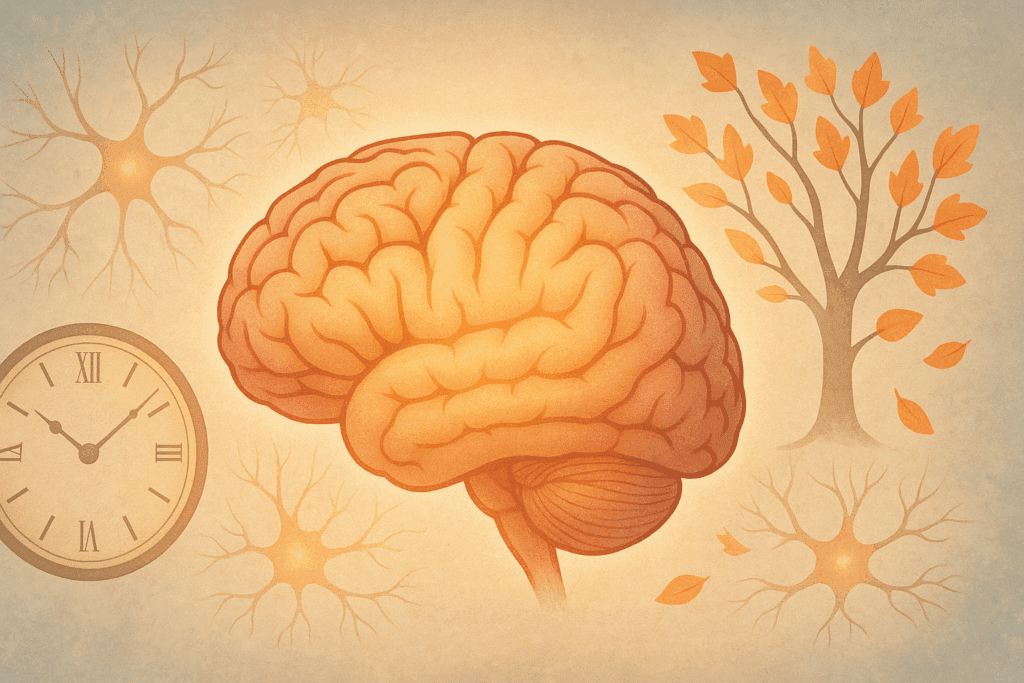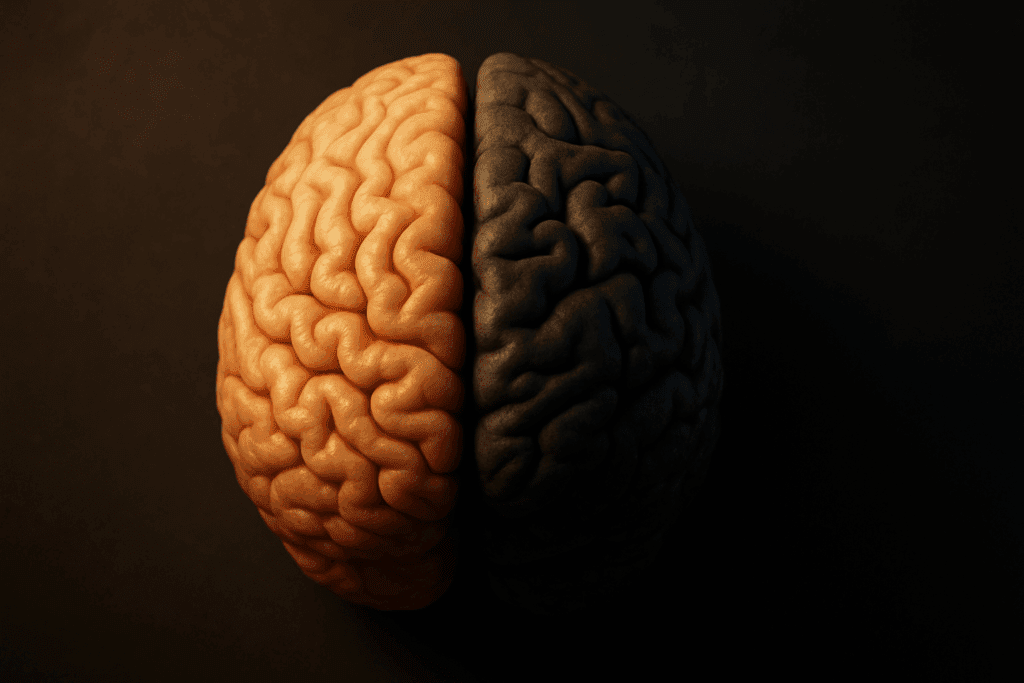Memory is a central element of human experience, intricately woven into our sense of identity, functionality, and connection to the world around us. As individuals age, concerns often emerge about changes in memory and cognition. Many people wonder if forgetfulness in older adults is a natural part of aging or a potential harbinger of something more serious, such as dementia. While momentary lapses in memory can be benign and even expected with age, they can also signify early cognitive decline. Understanding the difference between normal aging and signs of dementia is crucial for timely intervention, emotional reassurance, and informed caregiving.
The experience of becoming a little more forgetful in our later years can be unsettling, especially in a society that increasingly emphasizes productivity, mental sharpness, and independence. It’s not uncommon for individuals to notice that they misplace keys more frequently, struggle to recall a name, or occasionally forget an appointment. These changes can be normal, but distinguishing them from warning signs of cognitive impairment can be challenging. For many families, particularly those caring for an elderly man with a poor memory or an older adult who appears increasingly confused, the line between typical forgetfulness and dementia can become emotionally fraught.
To explore this issue comprehensively, we must first acknowledge that cognitive change is not monolithic. Not all forgetfulness in seniors indicates a pathological process. There exists a spectrum of memory change, from normal brain aging to conditions like mild cognitive impairment (MCI) and ultimately dementia. This article offers a detailed look at how memory changes with age, what constitutes the normal brain vs dementia trajectory, and how to recognize the red flags that suggest a need for medical evaluation.
You may also like: How to Prevent Dementia and Alzheimer’s Disease Naturally: Expert-Backed Strategies to Reduce Your Risk Through Lifestyle and Diet

Understanding Normal Memory Changes in Aging
To grasp the distinction between typical memory loss and dementia, it helps to understand how memory functions evolve naturally over time. As the brain ages, it undergoes structural and functional changes. These include a gradual shrinkage of certain brain regions, reduced plasticity of neurons, and alterations in neurotransmitter levels. These shifts can affect memory consolidation, processing speed, and retrieval.
In many cases, forgetfulness in older adults reflects these normal neurological adjustments. For instance, it may take longer to learn new information or to recall a specific word or name. Importantly, individuals with age-related forgetfulness are usually aware of their lapses and can often retrieve forgotten information later. They can still carry out daily activities and maintain independence, even if they require occasional reminders or aids like calendars and lists.
This type of memory loss is often referred to as “benign senescent forgetfulness” and does not progress rapidly or interfere with one’s ability to live independently. It is very different from the more pervasive and functionally disruptive memory impairments seen in dementia. Families often struggle to interpret signs correctly, especially when observing an elderly man with a poor memory, as they question whether such signs are harmless or deserve closer examination.

What Is Mild Cognitive Impairment?
Between the poles of normal aging and dementia lies a condition known as mild cognitive impairment (MCI). MCI involves more noticeable cognitive changes than what would be expected in normal aging, but these changes are not severe enough to significantly impair daily functioning. People with MCI may experience persistent memory issues, language difficulties, or challenges with decision-making that are noticeable to others.
The prevalence of MCI increases with age, and although it does not always progress to dementia, it is considered a risk factor for more serious cognitive decline. Monitoring an individual diagnosed with MCI is essential. In some cases, lifestyle adjustments, cognitive training, and management of underlying health conditions can stabilize or even improve symptoms.
Understanding MCI helps contextualize cases such as a 68-year-old who seems confused and forgetful. While not necessarily indicative of dementia, this presentation warrants a thorough evaluation. The phrase “68 confused forgetful” often triggers concern, especially when family members notice a change in behavior or cognition that feels out of character. A professional assessment can help determine whether the symptoms reflect MCI, early-stage dementia, or simply age-related forgetfulness.

Distinguishing the Normal Brain vs Dementia
Differentiating between a normal brain and one affected by dementia involves evaluating several dimensions of cognitive and behavioral function. In healthy aging, the brain maintains most of its abilities, although processing speed and short-term memory might decline. Individuals can still make decisions, solve problems, and maintain their personalities and social skills.
In contrast, dementia is a syndrome characterized by a significant and progressive decline in cognitive abilities. The most common form, Alzheimer’s disease, is marked by the accumulation of amyloid plaques and tau tangles that disrupt communication between neurons and eventually lead to neuronal death. Other types of dementia, such as vascular dementia, Lewy body dementia, and frontotemporal dementia, have distinct pathological mechanisms but share the feature of impairing multiple cognitive domains.
A critical sign of dementia is the loss of ability to carry out daily tasks. Someone who is old age forgetful may misplace their glasses or momentarily forget why they entered a room. However, someone with dementia might forget how to make a familiar recipe, get lost in a neighborhood they’ve lived in for years, or be unable to follow a conversation.
These differences may become particularly salient when observing an elderly man with a poor memory. If his forgetfulness is accompanied by confusion about time or place, changes in judgment, or withdrawal from social activities, the situation likely goes beyond benign aging. In such cases, understanding the contrast between a normal brain vs dementia becomes essential for diagnosis and planning.

Signs of Concerning Memory Loss in Seniors
While forgetfulness in seniors is often harmless, certain warning signs should prompt a closer look. One red flag is the increasing frequency and severity of memory lapses. Repeatedly forgetting recently learned information, relying heavily on memory aids, or asking for the same information over and over may indicate more than age-related change.
Disorientation is another concerning symptom. Seniors with cognitive decline may become confused about dates, seasons, or familiar places. The descriptor “68 confused forgetful” becomes clinically significant when it reflects a consistent pattern rather than isolated incidents. Other red flags include difficulty with problem-solving, impaired judgment, challenges in visual-spatial tasks like parking or reading maps, and noticeable changes in personality or behavior.
In many families, confusion and emotional turmoil arise as they observe increasing signs of memory decline but remain uncertain about what is normal and what is not. Knowing when forgetfulness in older adults crosses the threshold into medical concern requires vigilance and often professional input. A comprehensive assessment by a neurologist or geriatric specialist can provide clarity and guidance.
The Role of Early Detection and Diagnosis
Early diagnosis is critical when cognitive decline is suspected. Identifying dementia at an early stage allows for better care planning, more effective management of symptoms, and greater involvement of the affected person in decision-making. It also opens the door to potential treatments, participation in clinical trials, and access to supportive resources.
Families often struggle with denial or fear when considering that their loved one’s forgetfulness may be a sign of dementia. However, delaying evaluation can result in lost opportunities for intervention. Recognizing the signs early—especially when observing an elderly man with a poor memory or a senior who suddenly becomes more withdrawn—can significantly impact quality of life.
Primary care providers are often the first point of contact and can administer preliminary screening tools such as the Mini-Mental State Examination (MMSE) or the Montreal Cognitive Assessment (MoCA). These tests offer a snapshot of cognitive function and help determine whether further evaluation by a specialist is warranted.
Contributing Factors and Risk Profiles
Understanding the risk factors that contribute to cognitive decline can also illuminate the broader context of forgetfulness in seniors. Age remains the single most significant risk factor for dementia, but genetics, cardiovascular health, sleep quality, diet, and education level also play vital roles.
Conditions such as hypertension, diabetes, and high cholesterol can damage blood vessels in the brain, leading to vascular dementia. Poor sleep quality, especially disorders like sleep apnea, has been linked to memory issues and may exacerbate existing cognitive impairments. Nutritional deficiencies, particularly in B vitamins, can also affect memory function.
Social isolation and depression are often overlooked but critically important contributors. Older adults who lack social interaction may experience accelerated cognitive decline. Thus, when evaluating whether forgetfulness in older adults is cause for concern, it is important to consider the whole person—not just isolated memory lapses, but their physical, emotional, and social well-being.
The Emotional Toll on Families and Caregivers
Witnessing the mental decline of a loved one is a deeply emotional experience. When a once-vibrant individual begins to exhibit signs of memory impairment, families may grapple with grief, anxiety, and confusion. These emotions are compounded by the uncertainty of distinguishing between a normal brain vs dementia, especially when changes unfold gradually.
Caregivers often face a steep learning curve as they try to understand their loved one’s condition, navigate healthcare systems, and manage day-to-day responsibilities. The experience can be especially distressing when dealing with an elderly man with a poor memory who becomes increasingly dependent or irritable. The emotional labor involved in caregiving is immense and deserves recognition and support.
Support groups, counseling services, and respite care programs can provide much-needed relief. Educating families about what to expect, including how to interpret signs like being old age forgetful or increasingly withdrawn, can empower them to make informed decisions and offer compassionate care.

Strategies for Supporting Cognitive Health
While some degree of cognitive change is inevitable with aging, there are strategies that can help maintain brain health and possibly delay the onset of dementia. These include lifestyle interventions such as regular physical activity, mental stimulation, a balanced diet, and social engagement.
Exercise promotes neurogenesis and improves blood flow to the brain, supporting memory and cognitive function. Engaging in intellectually stimulating activities—like learning a new language, playing chess, or solving puzzles—helps build cognitive reserve. A Mediterranean-style diet rich in fruits, vegetables, whole grains, lean proteins, and healthy fats has been associated with a lower risk of cognitive decline.
Social interaction is equally critical. Staying connected with others can protect against depression and mental deterioration. Programs that promote intergenerational engagement, volunteerism, and community involvement are especially beneficial for seniors. These measures are not cures but serve as protective buffers, helping mitigate the effects of forgetfulness in seniors.
Cultural Perspectives on Memory and Aging
Cultural attitudes toward aging and memory loss shape how families interpret and respond to cognitive changes. In some cultures, forgetfulness in older adults is viewed as a normal, even expected, aspect of growing old and may be met with patience and acceptance. In others, it is a source of shame or fear, leading to denial and delayed diagnosis.
These cultural frameworks influence whether families seek medical help early or wait until symptoms are severe. They also shape caregiving dynamics, expectations, and the stigma surrounding dementia. Recognizing these nuances is important for healthcare providers, who must navigate cultural sensitivity when discussing memory changes and dementia with diverse populations.
By acknowledging cultural influences, healthcare professionals and families alike can foster more open, respectful conversations about memory health. This inclusive approach ensures that all seniors, regardless of background, receive appropriate evaluation and care.
How to Talk About Memory Concerns with Loved Ones
Initiating a conversation about memory loss can be delicate. Seniors may feel embarrassed, defensive, or frightened by the suggestion that something might be wrong. Approaching the topic with empathy and tact is crucial.
Rather than confronting a loved one with accusations or concerns, it is more productive to share observations in a non-judgmental way. Phrases like “I’ve noticed you’ve been forgetting things more often lately” or “You seemed a bit confused the other day; is everything okay?” can open the door to dialogue without creating resistance.
Framing the conversation around a desire to support rather than to diagnose can ease tension. Families should also be prepared to offer practical next steps, such as scheduling a medical evaluation, accompanying the loved one to a doctor’s visit, or helping them track memory issues over time. This proactive, supportive approach is more likely to yield constructive outcomes.
Frequently Asked Questions: Understanding Forgetfulness in Older Adults and Early Signs of Dementia
1. Can lifestyle changes reverse forgetfulness in seniors, or only slow it down?
While forgetfulness in seniors cannot typically be reversed if it’s due to natural brain aging, certain lifestyle interventions can slow cognitive decline and, in some cases, improve function. Activities that engage both the body and mind, such as learning new skills or participating in structured exercise programs, may help improve attention and memory. Adequate hydration, proper sleep hygiene, and managing cardiovascular risk factors can also impact brain health. When forgetfulness in older adults is due to potentially reversible causes like medication side effects or nutritional deficiencies, targeted treatment may lead to partial cognitive recovery. The key is early identification and a personalized strategy to support cognitive resilience.
2. How do stress and anxiety contribute to being old age forgetful?
Stress and anxiety are often underestimated contributors to forgetfulness in seniors. Chronic stress raises cortisol levels, which can impair the hippocampus, the brain region essential for forming new memories. This effect is especially pronounced in older adults, whose brains may already be undergoing age-related structural changes. An elderly man with a poor memory may not always be showing signs of dementia—he could be overwhelmed by unaddressed emotional burdens. Differentiating stress-induced memory lapses from neurodegenerative issues is crucial for choosing the right intervention.
3. Is there a specific age when normal forgetfulness becomes a concern?
There is no universal age at which memory lapses should automatically cause alarm. However, when a person around age 68 appears confused and forgetful more than occasionally, it may prompt further assessment. Forgetfulness in older adults must be evaluated in the context of function: are they forgetting how to perform daily routines or just misplacing items occasionally? Being old age forgetful is not inherently worrisome, but when cognitive shifts begin to impact decision-making, orientation, or safety, further evaluation is warranted. Age alone is not the key determinant—functional ability and behavioral context matter more.
4. Can social isolation mimic symptoms of dementia in older adults?
Absolutely. Social isolation can contribute to or even mimic the signs of dementia, especially when combined with depression or anxiety. An elderly man with a poor memory who also lacks regular social interaction may appear more cognitively impaired than he truly is. Engaging socially stimulates multiple parts of the brain and can help protect against cognitive decline. In some cases, what seems like forgetfulness in seniors is partially rooted in disuse rather than degeneration. Reintroducing structured social engagement can lead to marked improvements in alertness and recall.
5. How can caregivers track the difference between a normal brain vs dementia at home?
Caregivers can observe for patterns of behavior that distinguish normal forgetfulness from dementia. A normal brain vs dementia differs in consistency and progression—normal memory lapses are occasional and non-disruptive, while dementia signs tend to worsen and interfere with life. Tools like memory journals, digital apps, or monthly self-assessments can be helpful for tracking changes over time. A caregiver noticing a 68-year-old confused and forgetful on multiple occasions should consider whether these episodes align with missed bills, medication errors, or unsafe behavior. Documenting these incidents can help physicians reach a more accurate diagnosis.
6. What role do medications play in memory issues among older adults?
Medications are a frequently overlooked contributor to forgetfulness in older adults. Drugs with anticholinergic properties, sedatives, or polypharmacy interactions can significantly impair cognitive function. Even medications prescribed for unrelated issues like blood pressure or urinary incontinence can cause cognitive side effects in susceptible individuals. For a 68-year-old confused and forgetful, a thorough medication review may uncover the root of the problem. Adjusting dosages or switching medications under medical guidance can sometimes result in dramatic cognitive improvement.
7. Are there gender differences in how memory changes present in older adults?
Emerging research suggests that men and women may experience and report memory decline differently. For example, women often perform better on verbal memory tasks despite similar levels of brain pathology, which might delay dementia diagnoses in some cases. In contrast, signs like an elderly man with a poor memory might be detected earlier if his cognitive challenges are more functionally apparent. These gender nuances mean that forgetfulness in seniors should always be assessed individually rather than using a one-size-fits-all approach. Tailoring interventions to gender-based differences may improve outcomes.
8. Can hearing loss affect memory performance in seniors?
Yes, untreated hearing loss can significantly impact cognitive performance and is even associated with a higher risk of developing dementia. When seniors struggle to hear, their brain must work harder to process sounds, reducing the cognitive bandwidth available for memory and attention. This can manifest as forgetfulness in older adults even if their memory systems are otherwise intact. A 68-year-old confused and forgetful might benefit from a hearing evaluation to rule out auditory processing issues contributing to their symptoms. Addressing hearing loss with devices or auditory training may restore communication and improve mental sharpness.
9. How does multilingualism impact forgetfulness in seniors?
Multilingual individuals often possess greater cognitive reserve, which may delay the onset of dementia symptoms. However, in older adults, shifting between languages can sometimes create the illusion of confusion or forgetfulness. For example, a multilingual elderly man with a poor memory may struggle with word retrieval in one language while still functioning well in another. This nuanced presentation can be misinterpreted as dementia unless cultural and linguistic factors are taken into account. Overall, lifelong bilingualism or multilingualism appears to protect against cognitive decline but may complicate symptom recognition.
10. What innovations are being explored to detect early signs of dementia more accurately?
Advancements in AI, biomarker testing, and digital cognitive assessments are making it easier to distinguish a normal brain vs dementia at earlier stages. Blood-based biomarkers such as p-tau181 are being investigated for their ability to detect Alzheimer-related changes before symptoms become obvious. Wearable devices that monitor behavior and movement patterns may soon help identify subtle signs of forgetfulness in seniors. For instance, a system could detect when a 68-year-old becomes confused and forgetful during certain times of day or in specific environments. These innovations promise earlier detection, more personalized care, and potentially new pathways for intervention.
Conclusion: Recognizing the Signs of Cognitive Decline and When to Seek Help
Understanding when forgetfulness in older adults is part of the natural aging process and when it might signal the onset of dementia is vital for families, caregivers, and healthcare providers alike. The transition from being simply old age forgetful to experiencing cognitive symptoms that interfere with daily life marks a critical threshold that deserves attention.
Whether you’re observing a 68-year-old who seems confused and forgetful, or you’re concerned about an elderly man with a poor memory, the key lies in monitoring patterns, understanding context, and seeking professional evaluation when necessary. Recognizing the difference between a normal brain vs dementia allows for earlier intervention, better care planning, and improved quality of life for both patients and their families.
Forgetfulness in seniors should not automatically trigger fear, but it should inspire awareness. Armed with knowledge and compassion, families can navigate these changes with greater clarity and confidence, ensuring that their loved ones receive the support, dignity, and care they deserve as they age.
Further Reading:
Memory Problems, Forgetfulness, and Aging


